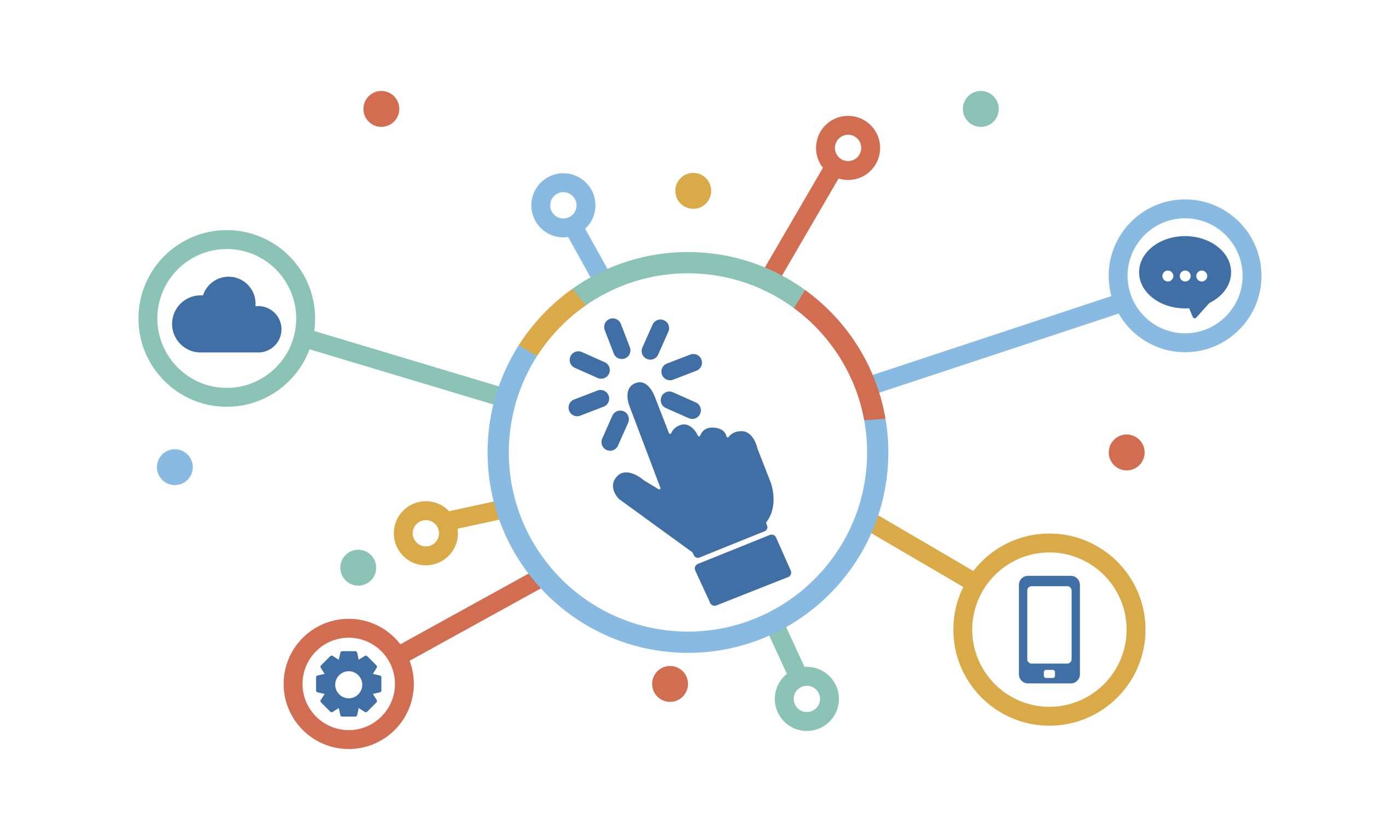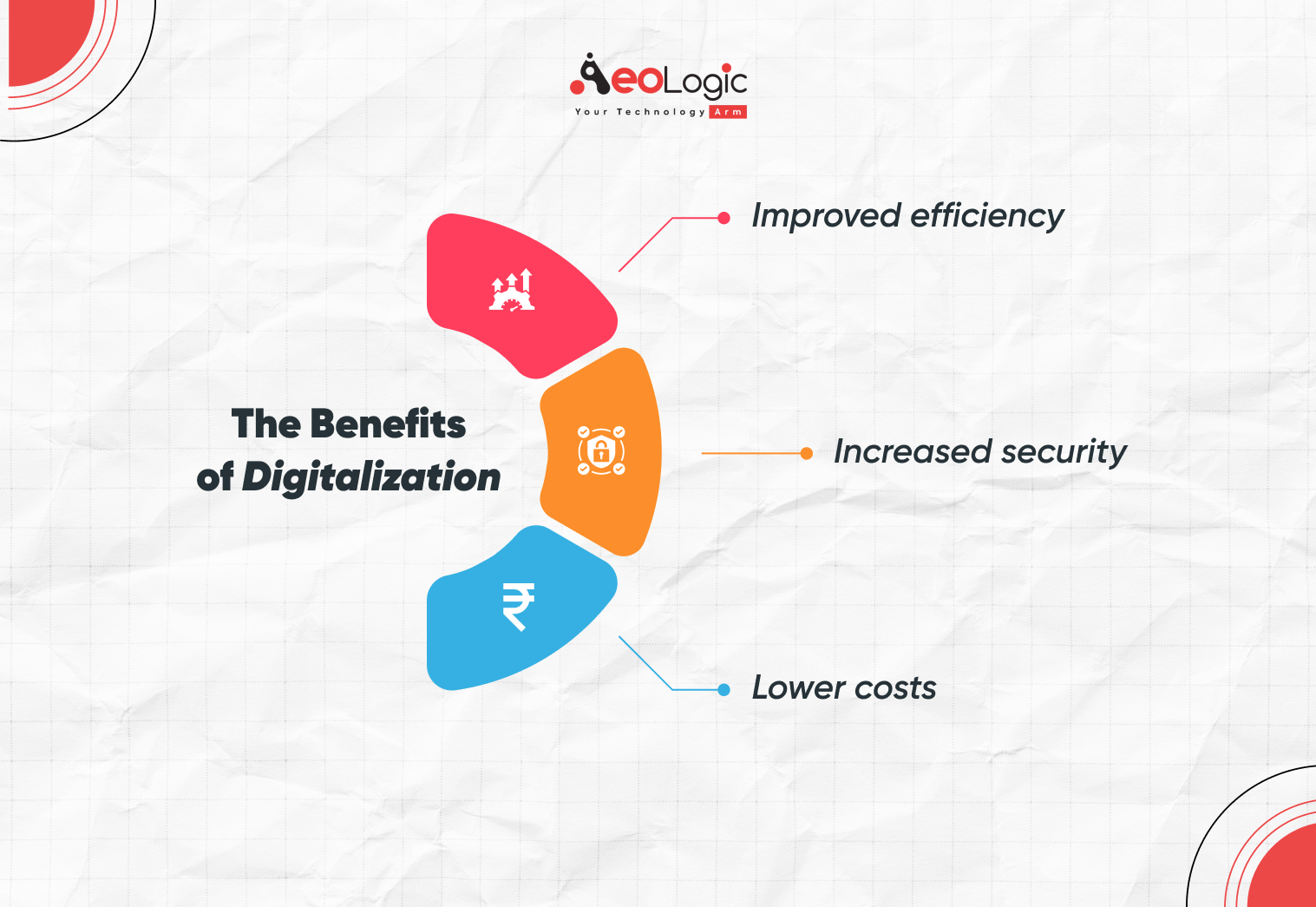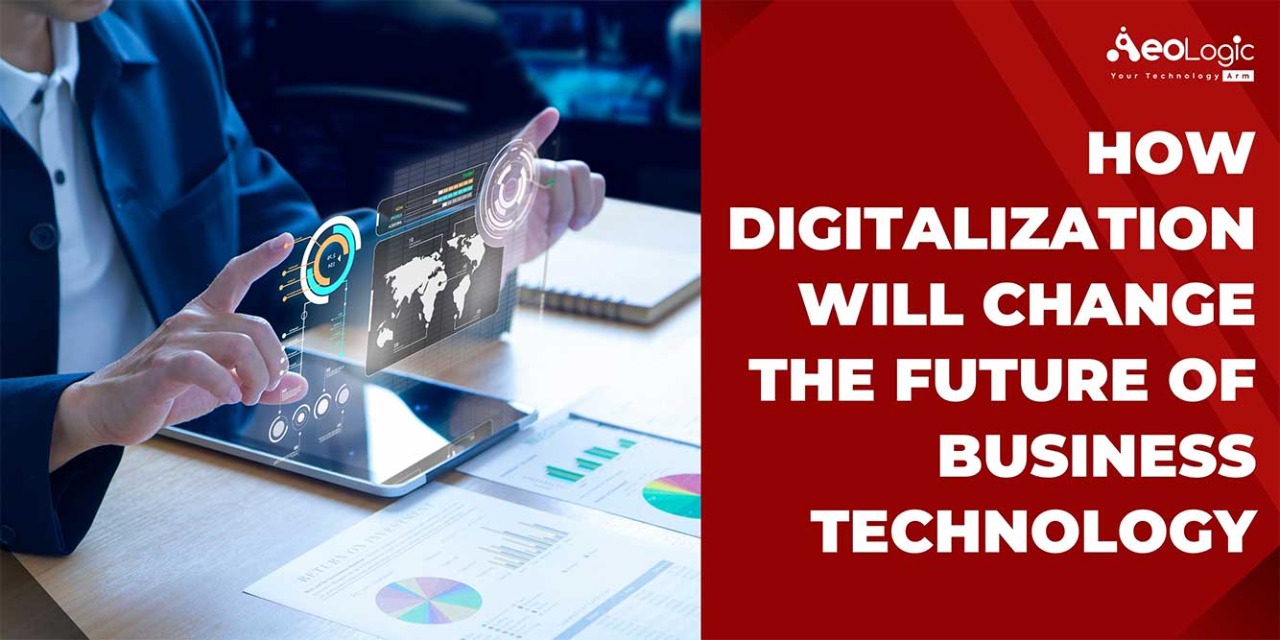The future of business technology is all about digitalization. Digitalization is a process that enables companies to function more efficiently. It’s going to change everything, from how you do business to how you go about your daily life. So, in this article, we’ll look at how digitalization will change the future of business technology.
Let’s get straight to it!
Digitalization will enhance office productivity by allowing employees to access their work from anywhere. It will also let employers track their employees’ work hours and analyze which ones are performing effectively.
Digitalization will change how we shop. We’re already seeing this with Amazon Go stores, where customers can walk into a store and simply take what they want without interacting with anyone else or waiting in line; they pay using an app on their phone when they leave the store. This is just one example of how digitalization will change retail shopping forever!
What Is Digitalization?

Digitalization is the process by which we move from analog technologies to digital ones. It’s an evolution from systems that use physical objects, like paper documents or CDs, to ones that use digital files stored on computers or other devices.
It is also a process of transformation that affects almost every corner of the global economy. At its core, digitalization is about improving the way we live and conduct business through the intelligent use of technology.
The History of Digitalization
Digitalization began in earnest in the 1960s with the invention of the integrated circuit (IC). The history of digitalization truly began with the creation of computers in the 1940s. The development of computers allowed people to store and process large amounts of data at once. Computers have evolved over time, becoming smaller and more efficient. Today, there are several types of computer systems that can be used for various purposes: personal computers (PCs), mainframe computers (MFs), supercomputers, and embedded systems.
In addition to computers, digitalization has been used in other technologies such as mobile phones, televisions, and even watches!
Recommended: Importance Of Technology Advancement In the Business Sector
The Benefits of Digitalization

Digitalization offers many benefits for businesses. These include:
- Improved efficiency: A digital system can be set up to automate repetitive tasks and save time for employees, who can then focus on more valuable tasks.
- Increased security: Digital systems are much harder to hack than older systems, so your business will be less vulnerable to cyber attacks if you adopt digital technology.
- Lower costs: The cost of running a digital system is significantly lower than running an analog system because there are fewer moving parts and it doesn’t require expensive maintenance contracts or repairs when something breaks down (which happens much less often). This means that, compared to an analog system, your business will spend less each month to run.
Challenges to Adopting Digital Technology
The biggest challenge for businesses wanting to adopt digital technology is that it requires a change in mindset. The majority of companies are still stuck in an era where they think that paper records are more efficient than digital ones, or that email is better than instant messaging. If companies want to keep up with innovation and stay ahead of their competitors, they must abandon these beliefs.
Another challenge for adopting digital technology is staffing issues: finding people who know how to use it and can work effectively with it takes time, effort, and money (even though it can save money in the long term). Investing in employee training can help businesses save time and money with AI-powered chatbots and automated processes.
Recommended: How the Internet of Things is Revolutionizing Healthcare
How Digitalization Changes the Future of Business
Digitalization has been a popular topic for decades, but now we’re starting to see its consequences.
The first thing that occurs is an increase in connectivity. With so many devices and platforms connected to the internet, it only makes sense that there will be more ways for people to communicate with each other. This means that businesses have more opportunities to connect with customers, even if they’re not physically present in their stores or offices.
The second major change is that digitalization allows us to create new products and services. Instead of having just one product or service available for sale, companies can now offer multiple options for consumers who want something different from what’s already out there.
Digitalization also changes how businesses interact with each other. It makes it easier for companies to collaborate on projects like marketing campaigns or product development. Because of digitalization, they can use each other’s networks.
How Digitalization Changes the Future of Business
Digitalization will change the future of business technology in many ways:
- Automation will become more widespread as machines take over more tasks that people used to do manually. This means that we need fewer people to do those jobs, so we may see a shift toward more part-time work or freelance work.
- New kinds of jobs are likely to emerge as well—for example, one might imagine a “machine whisperer” who helps keep an automated system running smoothly.
- The nature of work itself will change as employees become more isolated from their colleagues and supervisors because they’re spending so much time working remotely or on their own schedules.
Recommended: Technology’s Role in Repairing a Broken Healthcare System
Conclusion
Most business technology users repeatedly face challenges such as information overload and a lack of control. The next wave of digitalization could offer companies an opportunity for change. Adopting digitalization means redesigning the work process, not just using IT tools in traditional ways. It requires developing new approaches to software and hardware that enable support for internal and external success factors. As a result, companies can expect many benefits, including improved decision making, more agile processes, streamlined collaboration, and more.
We hope you’ve enjoyed this blog post and found it informative!
Thanks for reading and be sure to check out more of our blogs for more great content.
Are you looking to implement digitalization technology into your business? If yes, so, please feel free to contact us at support@aeologic.com










